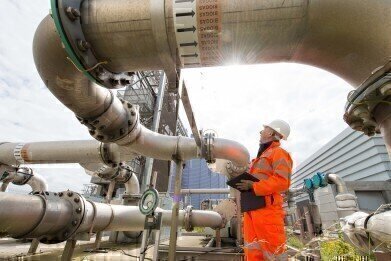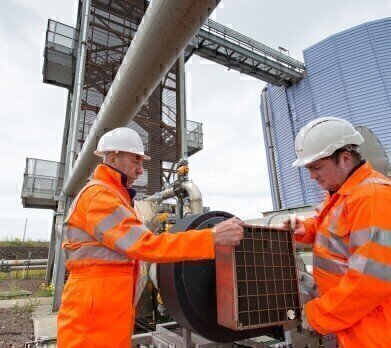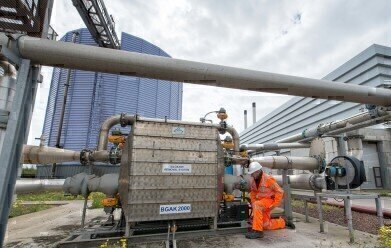Water/Wastewater
Veolia Helps Scottish Water Achieve Energy Self-sufficiency
Jan 05 2018
Veolia, the global resource management company is now helping Scottish Water to achieve the target of energy self-sufficiency at its Seafield Wastewater Treatment Works, WwTW, the largest treatment works in the east of Scotland. Since 2015 Veolia have extended the site’s capability to generate its own energy from 55% to around 85% in 2017 by boosting the renewable energy derived from a combination anaerobic digestion of sludge and biogas fired combined heat and power (CHP) plants. In fact full self-sufficiency has already been achieved at various points during 2017 when Seafield used no electricity from the Grid.
Seafield WwTW treats waste for a population equivalent of approximately 850,000 people from Edinburgh and the surrounding area which equates to 300 million litres of wastewater every day – enough to fill 121 Olympic sized swimming pools. By implementing a range of innovations and increasing efficiency the target of energy self-sufficiency has been set as the practical target and will further sustainability and lower carbon emissions. The advances to date mean that the Seafiled site has also reduced its energy costs by 50% which will help meet the value-for-money consumer criteria set for the industry.
The water industry is the fourth most energy intensive UK industry and uses around 3% of UK generated electricity for pumping, water treatment and waste management which directly contributes around 1% of the UK’s greenhouse gas (GHG) emissions. Working in partnership with Scottish Water, Veolia have introduced a wide range of measures to derive renewable energy using sludge as a valuable resource. Measures installed to date include a thermal hydrolysis process that has increased biogas production by around 10%, investment in an additional CHP unit to provide greater energy generation and to take advantage of the additional biogas, and a further 3% increase in the yield of biogas.
Commenting on the continuing development, John Abraham, Chief Operating Officer Water at Veolia said, “Recent estimates indicate that the water industry could be self-sustaining for electricity by harnessing the 11 billion litre annual flow of waste water. Our application of technology to this process demonstrates how we can help deliver greater sustainability for the industry using waste water to energy systems, and also meet water industry carbon reduction targets. In this way we can make a significant contribution towards delivering renewable energy targets, while keeping the lights on and taking pressure from the National Grid.”
More advanced technologies now mean that biogas from all the available sewage could deliver an estimated 1,697GWh - enough electricity to power over half a million homes, increasing the resilience of the National Grid and helping to control energy bills.
Events
IWA World Water Congress & Exhibition
Aug 11 2024 Toronto, Canada
Aug 25 2024 Stockholm, Sweden and online
Sep 03 2024 Mexico City, Mexico
Sep 03 2024 Mexico City, Mexico
Sep 03 2024 San Diego, CA, USA





..jpg)









